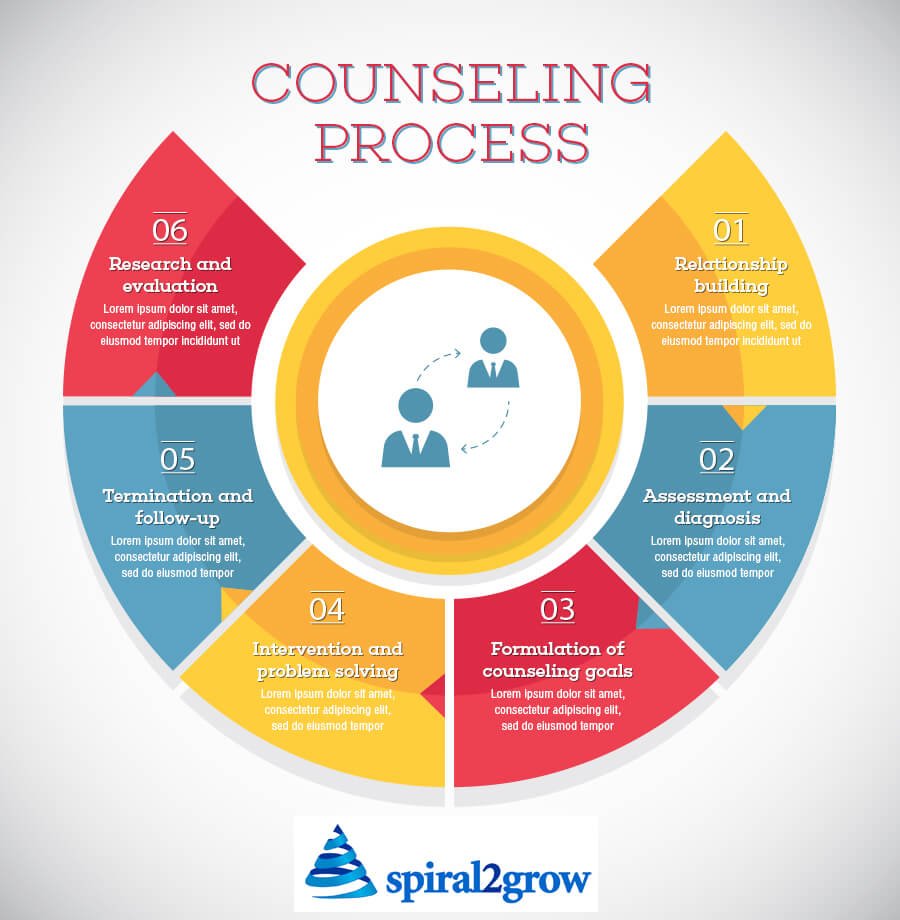The Counseling Process

Psychotherapy or counseling is a practice of psychological help that is done in a variety of ways depending upon the setting, presenting challenges of the client, theoretical modalities of the licensed therapist as well as other considerations. The following information is designed to provide you with a better idea of what you should expect in the counseling process.
Counseling In General
• Counseling is a collaboration and a dialogue with a purpose.
• The purpose or goal of the counseling is mainly defined by the client while guided by the psychotherapist.
• Counseling is NOT about giving advice or telling you what to do … while the counselor in an expert in facilitating the process of change (see below), you are the expert on you, and your life. The counselor empowers you to make decisions and realize what is right for you.
• The psychotherapist aspires to meet the clients where they are … to see the world through the eyes of the clients. Then help them move toward their goals/destinations.
• Counseling help clients:
1) learn about themselves (insight, understanding),
2) become more self-aware (self-talk, environment)
3) learn new relevant skills (life, career, relationship)
4) move from theory to practicality
5) become more emotionally intelligent
6) use what you learn to make real and significant changes in yourself and your life
The Process of Change
• Change is not a linear process. It takes time and can be difficult … you didn’t become the person you are today overnight, and you won’t make significant changes overnight either. There no quick fixes.
• Change requires effort and commitment. It comes slowly … the focus of counseling is on making gradual small changes that build momentum.
• Change is a process that involves several stages: 1) pre-contemplation, 2) contemplation, 3) planning, 4) action and 5) maintenance
• Setbacks, stagnations and resistances are a part of the change process
• A key aspect of the change is often about changing your perspective about the situation … you cannot control events in your life but you can control how you relate and react to them.
• Fundamental and profound change is achieved from the client’s efforts, commitment and hard work … it is about applying what you learned during the counseling session in your life.
The Counseling Process
• Counseling is a process that involves the client’s active participation and full commitment to the therapeutic process.
• Working alliance, trust and rapport are key factors is a successful counseling relationship.
• It is collaboration between the counselor and the client….each has the responsibility to their tasks.
• The focus of counseling is on:
a) how do you see yourself?
b) how do you see your world?
c) how do you see yourself in your world?
d) how do you relate to yourself and your world?
e) are your perspective, attitude and behavior beneficial to you?
f) modifying dysfunctional behavior
g) promoting self-confidence
• The counseling goals of counseling are supported by various therapeutic techniques that are used to help you gain insight and achieve the established goals of counseling
• “Homework” and assignments are assigned periodically to help you address a specific issue discussed and to keep you fully engaged in the counseling process between sessions
• Progress monitoring (feedback) is important in evaluating the psychotherapy success
Factors for Effective Therapy
• Clients should feel understood, trust the therapist, and believe the therapist can help them.
• Psychotherapists should have a set of effective interpersonal skills and serve as a role model
• Effective therapists are able to form a working alliance that motivates the clients to act constructively.
• Both therapists and clients need to be flexible and experiential when resistance to the treatment is apparent or client is not making adequate progress.
• Therapists should be aware of their own psychological process and does not inject their own material into the therapy process unless such actions are deliberate and therapeutic.
• Effective counselors seek to continually improve and are aware of the best research evidence related to the particular client, in terms of treatment, challenges, historical and social context, etc.
• The psychotherapist is required to utilized an Evidence Based Practice (EBP in an attempt to put aside or compensate for their personal biases, and to approach psychotherapy research and method systematically.
Note: in “counseling” I refer to individual counseling, marriage therapy, couples’ therapy and family therapy.





